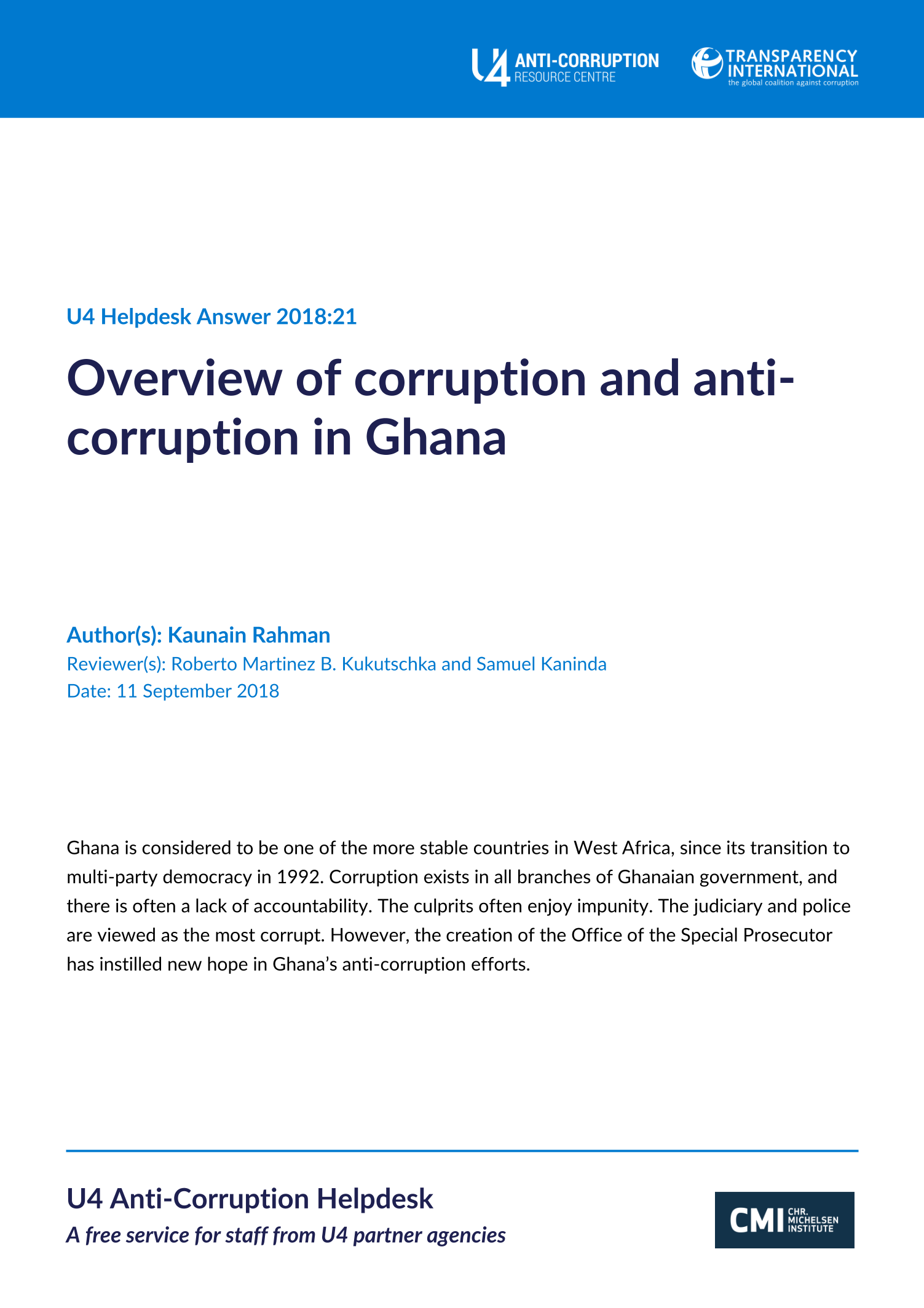Main points
- Widespread corruption exists in Ghana. Sectors worst affected by corruption include natural resource management, the judiciary and police.
- There is a need for an all-inclusive anti-corruption law.
- Courts are commonly perceived to be vulnerable to corruption.
- Prosecution of crime is often lengthy and people often turn to informal arbitrations.

